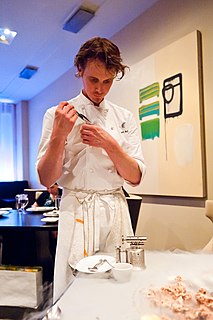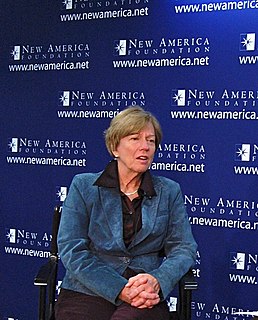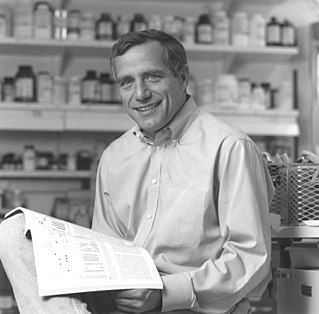A Quote by Homaro Cantu
A molecular gastronomist is really just someone who explores the world of science and food.
Related Quotes
The second half of the 20th century was a golden age of molecular biology, and it was one of the golden ages of the history of science. Molecular biology was so successful and made such a powerful alliance with the medical scientists that the two together just flourished. And they continue to flourish.
If you search the scientific literature on evolution, and if you focus your search on the question of how molecular machines - the basis of life - developed, you find an eerie and complete silence. The complexity of life's foundation has paralyzed science's attempt to account for it; molecular machines raise an as-yet-impenetrable barrier to Darwinism's universal reach.
...Only the big food manufacturers have the wherewithal to secure FDA-approved health claims for their products and then trumpet them to the world. Generally, it is the products of modern food science that make the boldest health claims, and these are often founded on incomplete and often bad science.





































